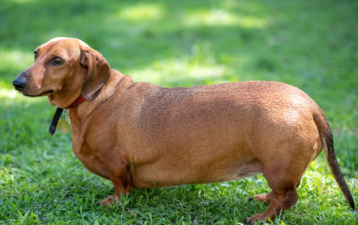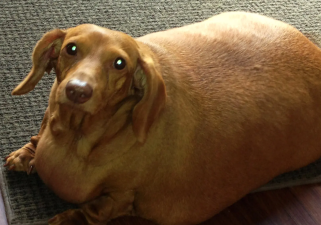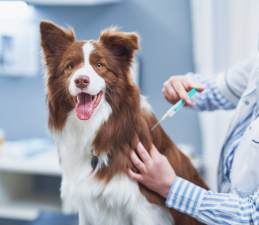In modern society, the health of pet dogs has attracted a lot of attention, especially obesity. For many families, how to help dogs lose weight effectively has become an urgent problem to be solved.


In modern society, the health of pet dogs has attracted a lot of attention, especially obesity. For many families, how to help dogs lose weight effectively has become an urgent problem to be solved.
The American Association for Pet Obesity Prevention (hereinafter referred to as APOP) research report pointed out that 59% of dogs have obesity problems, which is more than half of the proportion. However, only 39% of dog owners and 45% of cat owners think that their pets are overweight, and even 50% have not reached it. This shows that the situation of pet obesity is very serious.
◉ Analysis of obesity problems

Take Taozi, a miniature dachshund in Adachi District, Tokyo, as an example. Taozi, who is now 4 years and 9 months old, weighs as much as 7.8kg, far exceeding the normal range (4.5~4.8kg), and is severely obese. Taozi's body, especially around the neck, has serious fat accumulation, the chin meat is loose, and the chest to the abdomen is obviously larger than that of normal dogs, and there is no waist at all. Due to obesity, Taozi's daily movements have become slow, and she feels tired after a little activity, so she often chooses to lie down.
Excessive obesity will not only increase the burden on the dog's waist and legs, but also cause the organs in the body to be wrapped in fat, affecting their normal functions. In the long run, it may cause various health problems and seriously shorten their lifespan. It is particularly important to help dogs gradually restore a healthy weight.
◉ Diet adjustment plan
Some dogs have a strong appetite and excellent appetite, which makes the owner often unable to resist feeding it a large amount of dog food and snacks. Diet control is an important means to help dogs lose weight. Re-examining the dog's diet structure is the key. Helping dogs lose weight is not just relying on exercise, but also diet control. It is often difficult to achieve the goal of weight loss by the dog's own efforts alone.
In order to help dogs lose weight more scientifically, we should use the ideal weight of the miniature dachshund of 4.8kg as a reference, gradually reduce calories, and reduce by about 10% per month to comprehensively control the diet structure and ensure balanced nutrition. The recommended daily calorie requirement is 437kcal, and appropriate nutrition is provided through balanced small meals. In addition, combined with exercise can improve the weight loss effect.
◉ Weight loss precautions

Increasing brisk walking or uphill walking can help improve the weight loss effect. It is recommended not to rely solely on walking. Controlling the intake of high-fat foods can appropriately increase the intake of protein and dietary fiber to reduce fat absorption. When feeding, it is not advisable to completely follow the recommended portion on the dog food package, and it should be adjusted according to the actual situation of the dog. Eating properly after exercise can help lose weight, because blood will flow to the gastrointestinal tract when food is digested, but please note that it takes time for blood flow to recover after exercise.
◉ Obesity signs and health risks
Tactile and visual signals can be used to determine whether a dog is obese. For example, if it is difficult to touch the dog's ribs, or if there is no obvious waistline from above, this may be a sign of severe obesity. Obesity problems are often associated with many diseases such as diabetes, joint diseases, respiratory system, and circulatory system in the body. In addition, diseases such as hyperadrenocortical hyperfunction, hyperthyroidism, and brain disorders may also cause obesity. Once a dog is found to have an unexplained weight change, whether it is weight gain or weight loss, it should be taken to the pet hospital for a detailed examination immediately.



